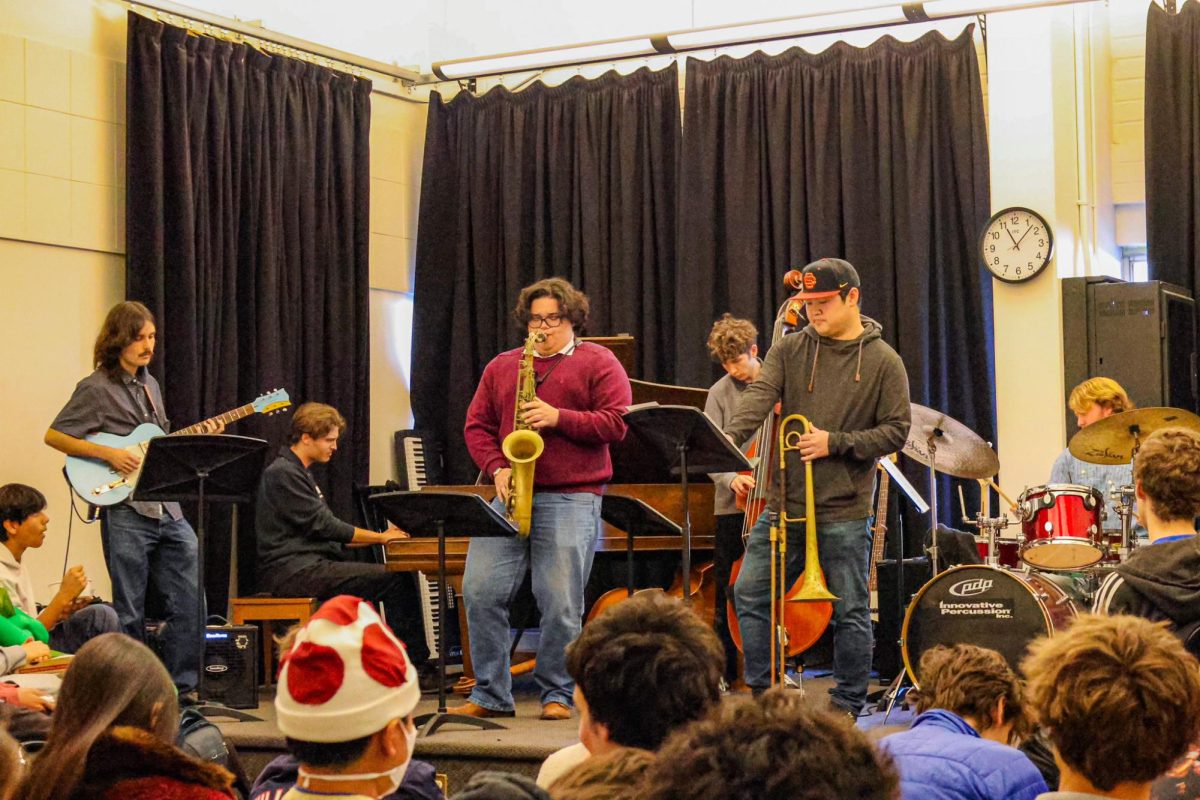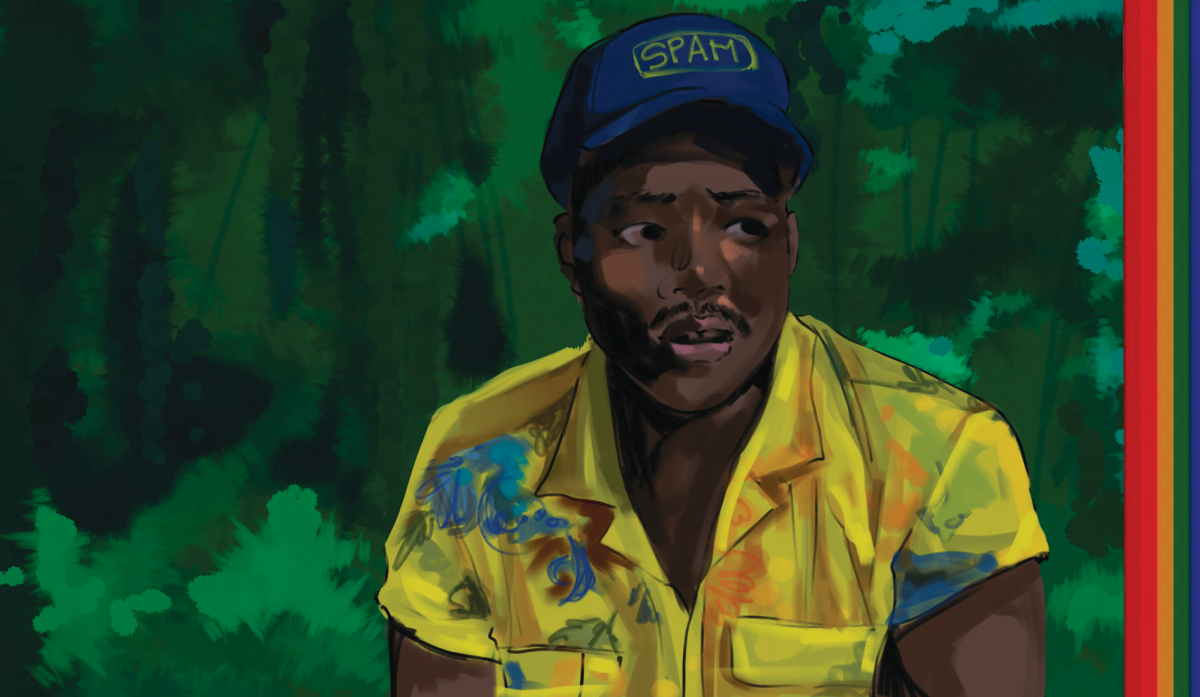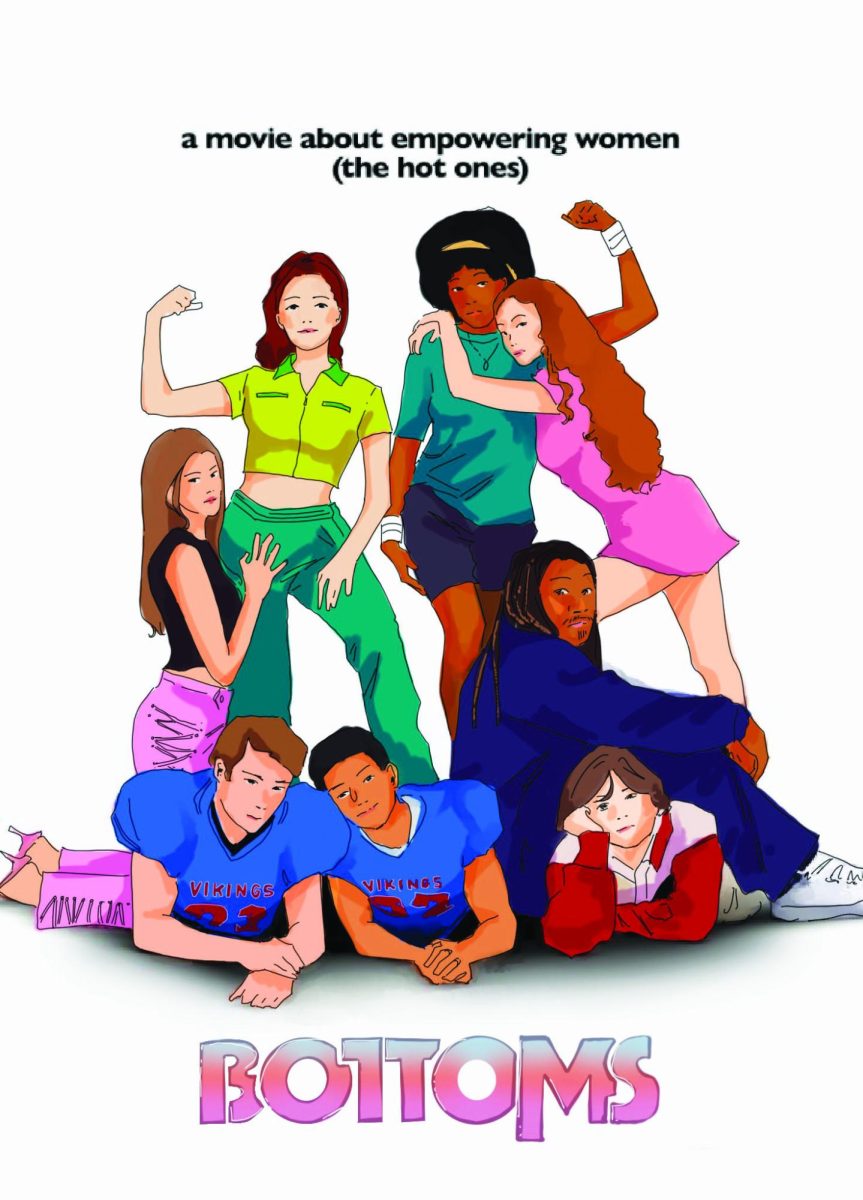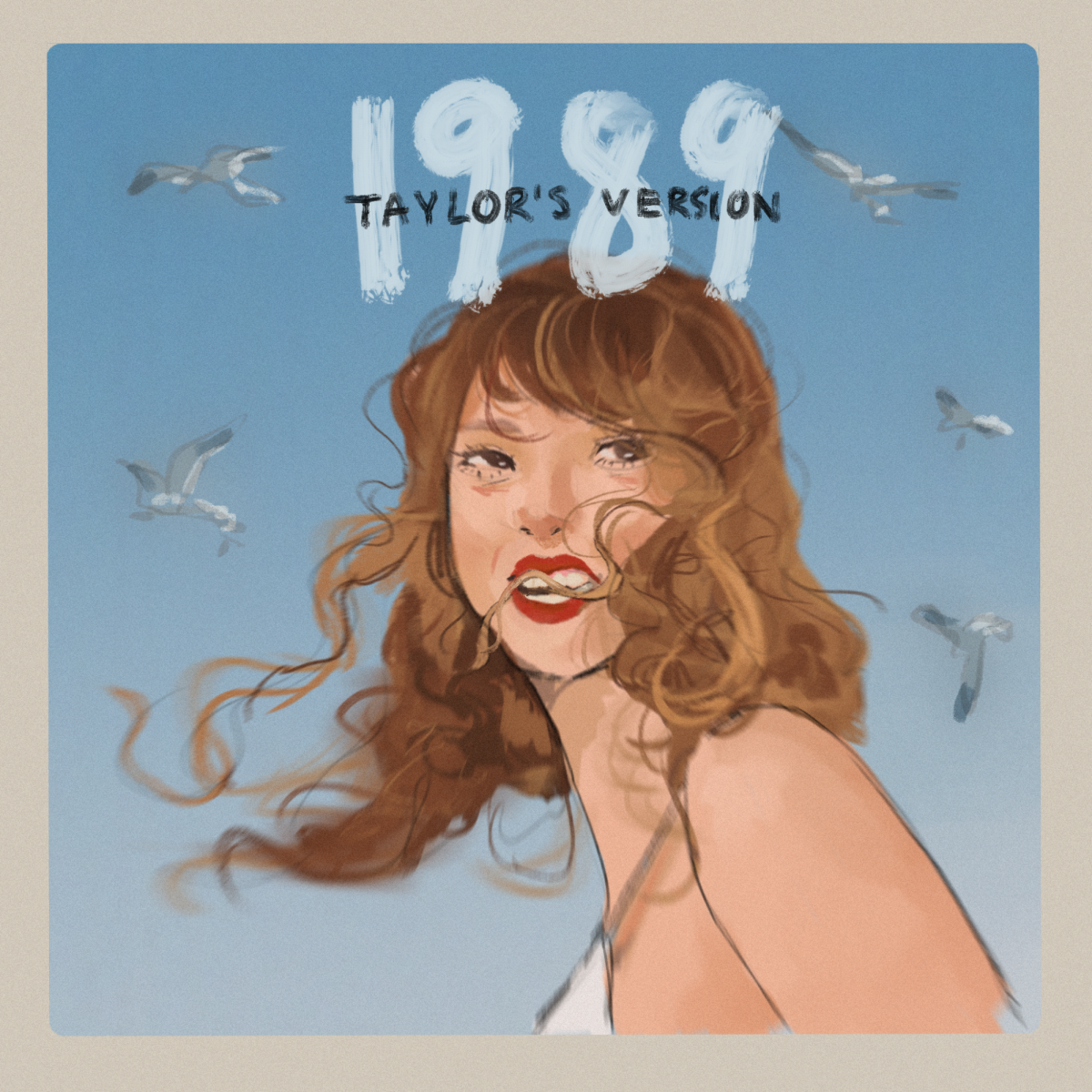By Joanna Im
As Sarah Bagley ’20 wrapped up her most recent gig with her recently formed new band, Root Canals, she went home satisfied with her performance. Later that night, she did homework, ran a shift for the KHWS radio site and relaxed without stressing over the stream numbers or the popularity of her band.
“Being in the band has helped me realize that music is all about having fun and that you shouldn’t force yourself to write something that isn’t organically your sound or from the heart,” Bagley said. “But my general opinion towards the [professional] music industry is that it is obviously an industry, so the main goal of it is to make money.”
Bagley’s purpose when making music is to create original music that others will enjoy, she said.
“Making music in Root Canal is really about just having fun for me and my friends,” Bagley said. “We all love music so much and want to share that. We try to make music that makes people have fun [and] to make our own original sound.”
However, more commercialized artists in the music industry do not share Bagley’s focus on music enjoyment. According to a study conducted by Skiddle, a website that reports on music festivals and concerts, 82% of workers in the music industry surveyed said they suffered from “intense and unmanageable” stress around issues of popularity and profit. Bagley said that she believes mainstream music is focused more on the industry than the artist.
“Artists are signed to labels because record companies believe that those artists will make them money,” Bagley said. “I think mainstream songs are too similar to one another, but it has always been that way. When a genre like pop or hip hop dominates, record labels see what’s popular and make more songs like that to make money and have a No. 1 hit. I think that [over-repetitiveness of music is] more of an issue with the music industry for creating those songs.”
Former K-Pop Trainee Justyn Chang ’19 said that his experience with the industry is also one that focuses on profit and production, rather than artists themselves. Chang formerly trained with two separate companies, SM entertainment and Jellyfish Entertainment.
Chang said that as a K-Pop Trainee, he had to live and train with other trainees under the same company. Trainees may have to train for years before being debuted into a new group.
“The music industry [in Korea] is more about the executives than the artists themselves,” Chang said. “In the company I was at, they would even make people change their characteristics. For example, some girls are told to have ‘cuter voices,’ and many demands are made on boy groups as well. [This type of treatment] also applies pretty similarly to solo artists as well. All of the content that the companies make is pretty much the same – it’s an industry, so they’re mostly driven by profit.”
Chang said that these patterns can also be seen in American mainstream music, even if they are not as obvious.
“While [this type of music production] is different in America, it’s similar in a lot of ways that people don’t really notice,” Chang said. “[American artists] still have to stick to an image and work for a company that’s looking for money. They’re just less open [than the Korean music industries] about how industrialized the business is.”
In a poll conducted by Vanity Fair, the majority of respondents from all age categories agreed that the last three years is the worst and most unoriginal music since the 1990’s.
However, KHWS radio host Landon Poon ’20 said that some mainstream music retains the artists’ message.
“Popular music is not the best, but it is also not the worst,” Poon said. “Obviously, there were a lot of bad popular albums, but that doesn’t mean we should write off popular music altogether. People have a tendency to complain about ‘music these days’ like the popular music today is somehow worse than past decades.”
Jazz Band Director and professional saxophone player Shawn Constantino said that popular music is inevitably controlled by profit and is practically put into an algorithm to gain popularity.
“Commercial music is formulaic by design, especially ‘pop’ music,” Constantino said. “It’s still music, so the skill and creativity are present, but they are deployed differently. Production techniques are super creative these days for instance. It is also very difficult to write a hit song. It has to have great lyrics, a hook, and a strong beat.”
Constantino said that within the classical music and jazz industry, profit often drives musician to transition into more popular music genres.
“Money is always a concern so many jazz and classically-trained musicians turn to popular music to make money,” Constantino said.
Poon said that he thinks the music industry’s desire for profit may stifle a performer’s artistic interests, but that it depends on each individual scenario.
“I think the music industry typically has a negative effect on music quality, but it varies from artist to artist,” Poon said. “Record deals trade artistic creativity for the backing of an established company, and I cannot blame artists for wanting the advantages and money that comes from working with a label.”
Poon also said that the mainstream music industry still may have benefits, including propelling political messages that otherwise wouldn’t be as well-known.
“With hip-hop being the biggest genre, there are things popular songs are doing today that they wouldn’t have done as bluntly in the past,” Poon said. “I think we also forget that ‘This is America’ [by Childish Gambino] was able to become hugely popular, and I don’t know of another time in which a song like that would be able to gain as much popularity. I am a little more optimistic than most people, I think the advent of streaming and the internet has allowed different types of music to be popularized as well.”
Poon said he believes that the music industry does have heavy influences from business and profit, but that this doesn’t change the quality of the music.
“People like to heavily critique all popular music to seem ‘edgy’ and ‘unique’ while forgetting to just have fun,” Poon said.
“Artists sign labels because record companies believe that those artists will make them money,” Bagley said. “I think mainstream songs are too similar to one another, but it has always been that way. When a genre like pop or hip hop dominates, record labels see what’s popular and make more songs like that to make money and have a No. 1 hit. I think that [over-repetitiveness of music is] more of an issue with the music industry for creating those songs.”
Former K-Pop Trainee Justyn Chang ’19 said that his experience with the industry is also one that focuses on profit and production, rather than artists themselves. Chang formerly trained with two separate companies, SM entertainment and Jellyfish Entertainment.
Chang said that as a K-Pop Trainee, he had to live and train with other trainees under the same company. Trainees may have to train for years before being debuted into a new group.
“The music industry [in Korea] is more about the executives than the artists themselves,” Chang said. “In the company I was at, they would even make people change their characteristics. For example, some girls are told to have ‘cuter voices,’ and many demands are made on boy groups as well. [This type of treatment] also applies pretty similarly to solo artists as well. All of the content that the companies make is pretty much the same – it’s an industry, so they’re mostly driven by profit.”
Chang said that these patterns can also be seen in American mainstream music, even if they are not as obvious.
“While [this type of music production] is different in America, it’s similar in a lot of ways that people don’t really notice,” Chang said. “[American artists] still have to stick to an image and work for a company that’s looking for money. They’re just less open [than the Korean music industries] about how industrialized the business is.”
In a poll conducted by Vanity Fair, the majority of respondents from all age categories agreed that the last three years is the worst and most unoriginal music since the 1990’s.
However, KHWS radio host Landon Poon ’20 said that some mainstream music retains the artists’ message.
“Popular music is not the best, but it is also not the worst,” Poon said. “Obviously, there were a lot of bad popular albums, but that doesn’t mean we should write off popular music altogether. People have a tendency to complain about ‘music these days’ like the popular music today is somehow worse than past decades.”
Jazz Band Director and professional saxophone player Shawn Constantino said that popular music is inevitably controlled by profit and is practically put into an algorithm to gain popularity.
“Commercial music is formulaic by design, especially ‘pop’ music,” Constantino said. “It’s still music, so the skill and creativity are present, but they are deployed differently. Production techniques are super creative these days for instance. It is also very difficult to write a hit song. It has to have great lyrics, a hook, and a strong beat.”
Constantino said that within the classical music and jazz industry, profit often drives musician to transition into more popular music genres.
“Money is always a concern so many jazz and classically-trained musicians turn to popular music to make money,” Constantino said.
Poon said that he thinks the music industry’s desire for profit may stifle a performer’s artistic interests, but that it depends on each individual scenario.
“I think the music industry typically has a negative effect on music quality, but it varies from artist to artist,” Poon said. “Record deals trade artistic creativity for the backing of an established company, and I cannot blame artists for wanting the advantages and money that comes from working with a label.”
Poon also said that the mainstream music industry still may have benefits, including propelling political messages that otherwise wouldn’t be as well-known.
“With hip-hop being the biggest genre, there are things popular songs are doing today that they wouldn’t have done as bluntly in the past,” Poon said. “I think we also forget that ‘This is America’ [by Childish Gambino] was able to become hugely popular, and I don’t know of another time in which a song like that would be able to gain as much popularity. I am a little more optimistic than most people, I think the advent of streaming and the internet has allowed different types of music to be popularized as well.”
Poon said he believes that the music industry does have heavy influences from business and profit, but that this doesn’t change the quality of the music.
“People like to heavily critique all popular music to seem ‘edgy’ and ‘unique’ while forgetting to just have fun,” Poon said.



































